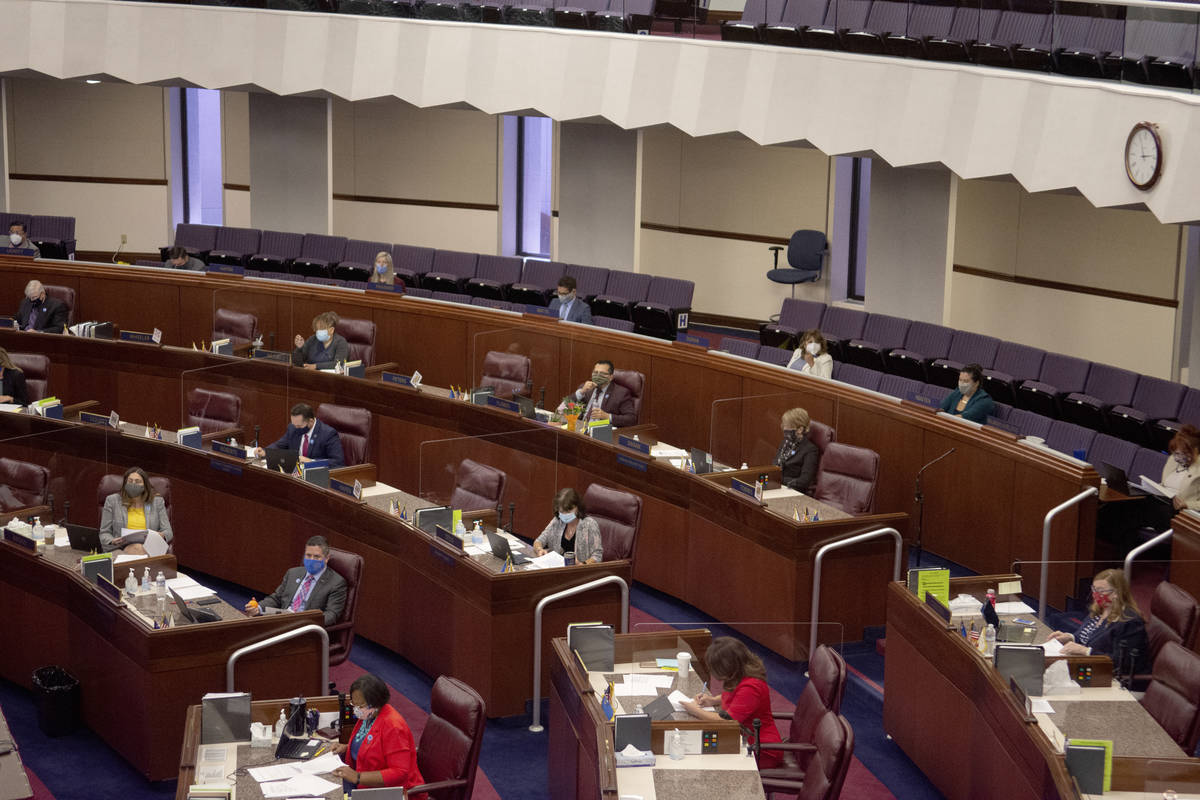STEVE SEBELIUS: Special session — what fresh hell is this?
Arguments over “the process” in Carson City are as ubiquitous as the one-minute recess. That’s to say, generally uninteresting.
Yet the recent 32nd special session that concluded early on Thursday morning was especially noteworthy for its uneven management, with legislative chambers sitting empty during the day, hearings called to order in the late afternoon or evening and adjournments in the small hours of the following day.
All told, eight bills were passed in the six days of work in Carson City, two of which were relatively uncontroversial.
In the Assembly, veteran Speaker Jason Frierson — with two regular sessions under his belt and a supermajority of Democrats available to adopt favorable rules — ruled his chamber with a ruthless efficiency that got bills passed quickly and effectively, if not when the sun was up.
In the Senate, things were harder for Majority Leader Nicole Cannizzaro. She became leader in 2019 when her predecessor, Kelvin Atkinson, stepped down amid a campaign finance scandal. Unlike Frierson, she lacks a supermajority and thus could not muster the two-thirds vote to waive a rule that requires bills to be read thrice, on successive days, before they can be passed.
Cannizzaro, who works full time as a Clark County deputy district attorney, also had to contend with the unpleasant task of repealing parts of a bill she carried in 2019 that expanded police officer rights. That measure, in the wake of the killing of George Floyd in Minneapolis and the Black Lives Matter movement, had drawn the ire and criticism of progressive activists.
It also doesn’t help that Cannizzaro, among three Democrats targeted for recall in 2017 by Republicans desperate to recapture the Senate majority, is up for re-election in November in what could be a close race in her Senate District 6, where Democrats have a 6,600 active voter lead.
Fairness also requires we acknowledge the institutional barriers to progress: Bills must be drafted and reviewed. Amendments must be considered and drafted. Interest groups (some more than others) must be consulted. Votes must be whipped. Plans must be laid.
None of that, however, can excuse the hearings that stretched well past midnight in both chambers, forcing lawmakers to parse complex, lengthy bills delivered with little notice, working through fatigue to ask cogent questions and comprehend the consequences of what they’re about to vote on. (One lawmaker, perhaps only half jokingly, suggested the late hours were intentional psychological warfare. We are all of us in Gitmo now.)
But even less excusable is forcing average citizens — who were banned from the Legislative Building because of COVID-19 restrictions and forced to watch the proceeds on the web — to wait until well past midnight to express their views by phone.
It was not just Republicans complaining about the process. Many people commenting on the bills remarked on the lateness of the hour for hearings.
The worst part: There was absolutely no reason for most of it. Those hearings could have happened during the day, if only lawmakers had been willing to flip the script and do their non-public work early in the morning. Why make your constituents stay up late when you could force the special interests lobbying the bill to do so instead?
That’s rhetorical, of course.
Certainly, Republican objections are hypocritical. “We weren’t in the room where it happened, and I object to this amendment,” said James Settelmeyer, R-Minden, the Senate’s minority leader, objecting to a change in a business liability bill. While a clever “Hamilton” reference, it falls flat when you consider Settelmeyer was in the Senate chamber just five years ago when then-majority Republicans jammed through a school reorganization measure at literally the eleventh hour over the shouted objections of powerless minority Democrats.
The majority party controls what comes to the floor, and how it moves. That’s the system and it’s why one former state senator said ruefully at the start of the 2015 session, “It sucks to be in the minority.”
Yes it does. But there’s a clear, bright line between the regular partisan shenanigans that are a time-honored part of the Carson City experience and an inability to master the clock and the process.
When the 32nd special session is recalled, we won’t just remember police reform, unemployment insurance reform, election law changes and business liability. We’ll also recall the hours upon endless hours of waiting, followed by greeting the new day still enmeshed in the business of the old one. In that way, the 32nd special session was vaguely reminiscent of hell, where the suffering is made all the worse by the knowledge that it will never end.
Contact Steve Sebelius at SSebelius @reviewjournal.com or 702-383-0253. Follow @SteveSebelius on Twitter.























